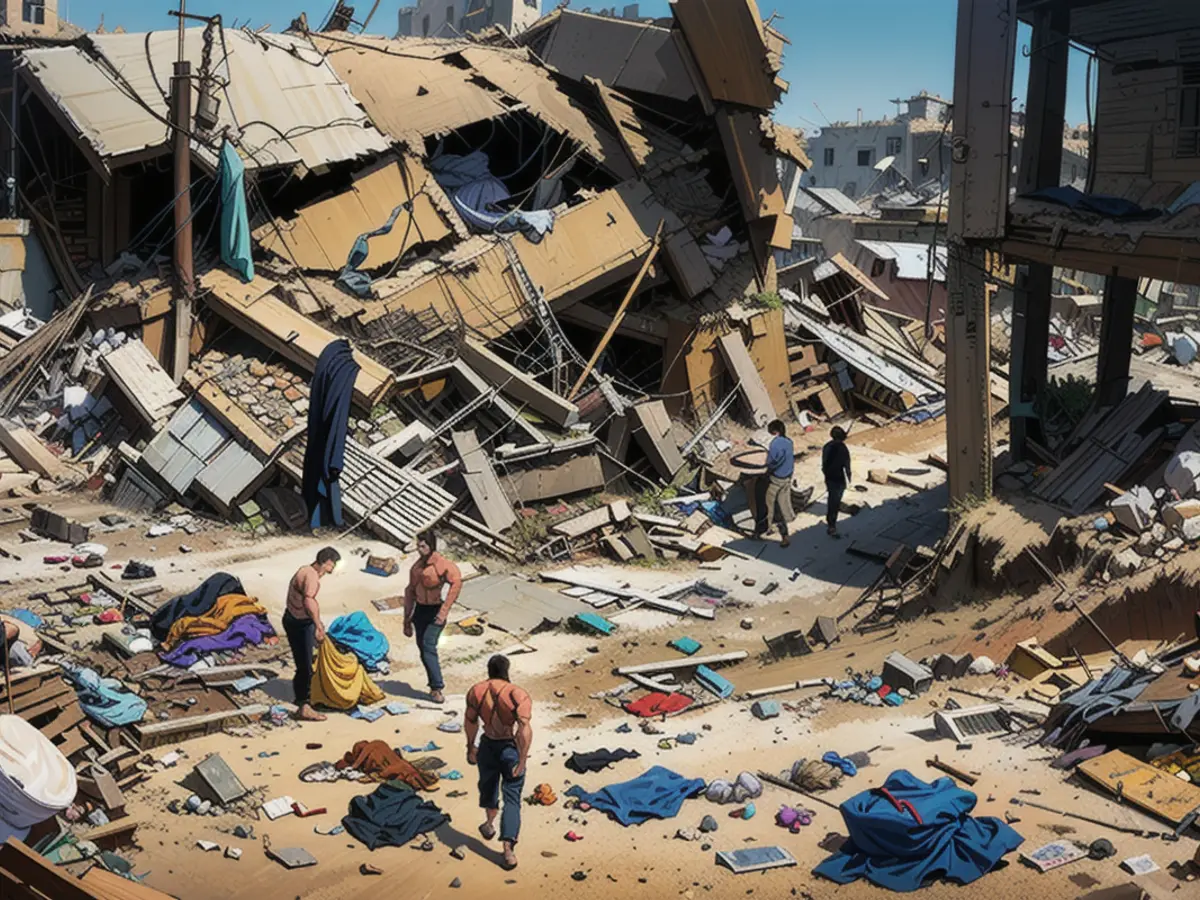Biden receives backing for Gaza agreement
US President Biden presents a new proposal for a ceasefire and hostage release in the Gaza War, receiving support from Germany and the UN.
In a surprising move, US President Joe Biden unveiled a three-phase plan to end the conflict between Hamas and Israel. His initiative gained international support, especially from Germany. On the same day, German Foreign Minister Annalena Baerbock welcomed the proposal, stating, "The Israeli offer presented by US President Biden today is a beacon of hope and may be the way out of this war's stalemate." She added that the German government fully backs the mediation efforts of the US, Qatar, and Egypt.
UN Secretary-General Antonio Guterres expressed his support as well, saying, "The Secretary-General has been calling for a ceasefire and full humanitarian access in Gaza for months, as well as the immediate release of all hostages. He hopes this will lead to an agreement among the parties for lasting peace."
The designated Indonesian president, Prabowo Subianto, announced his willingness to send peacekeeping troops to maintain a ceasefire in the Gaza Strip if necessary. He proclaimed Biden's plan a step in the right direction and shared his sentiment at the "Shangri-La Dialog," one of Asia's most significant security conferences.
Ending the war is a priority
President Biden's surprising move came during a US White House meeting. While speaking about the Gaza conflict, Biden stated, "It's time to end this war." He clarified that the comprehensive new plan, consisting of three phases, had been shared with the Hamas. Israel has given its consent to the proposal, stressing that they will only end the war once all goals are achieved.
Israeli Prime Minister Benjamin Netanyahu echoed the sentiment, confirming to release prisoners and commence reconstruction in Gaza, provided that the truce is maintained. Moreover, he mentioned that the Israeli negotiating team would work towards these goals.
Here are the details, according to US government insiders:
The first phase would entail a truce, humanitarian aid, and reopening of Gaza-Israel crossings. This stage would last six weeks with all densely populated areas in Gaza releasing specific hostages - notably women, senior citizens, and the injured. A considerable number of Palestinian prisoners in Israel would be freed, while the Hamas would return the remains of certain deceased hostages to their families. The immediate delivery of humanitarian aid and cleanup processes in Gaza would follow the beginning of the ceasefire.
The subsequent six-week period would witness negotiations between Israel and Hamas for a permanent cessation of hostilities. In this next phase, the release of the remaining living hostages would occur, along with the total withdrawal of the Israeli military from the Gaza Strip.
The final phase, spanning three to five years, would focus on rebuilding Gaza with support from the United States and the international community. The final remains of slain Israeli hostages would also be returned to their families. The plan has received positive feedback from various world leaders, such as German Chancellor Angela Merkel and UN Secretary-General Antonio Guterres. It remains unknown, however, whether Hamas will accept this proposal and if it will ultimately lead to a lasting peace between Israel and Palestine.
The first stage would feature an extensive and complete ceasefire, the withdrawal of Israeli forces from Gaza's highly populated areas, and the liberation of a specific group of hostages - including women, elderly, and injured. This phase would also see the release of hundreds of Palestinian prisoners in Israel and the return of damaged remains of killed hostages to their families. A considerable amount of humanitarian aid would be provided in Gaza immediately after the implementation of the ceasefire, with cleanup efforts commencing swiftly.
Throughout the six-week period of Phase One, negotiations would occur between Israel and Hamas to attain the necessary agreements to proceed to Phase Two - ending the conflict permanently. In this phase, the remaining living Israeli hostages would be released, as well as a complete withdrawal of the Israeli military from Gaza. This would also take around six weeks.
Phase Three would focus on Gaza's reconstruction, supported by the United States and the world over the course of three to five years. Furthermore, the final remains of killed Israeli hostages would be returned to their families.
Read also:
After receiving support from Germany and the UN, US President Joe Biden's proposal for a ceasefire and hostage release in the Gaza War gains traction. German Foreign Minister Annalena Baerbock commends Biden's three-phase plan, expressing hope that it will bring an end to the conflict and pave the way for peace.
In the midst of global discussions on the new proposal, Israeli Prime Minister Benjamin Netanyahu agrees to release prisoners and commence reconstruction in Gaza, provided that the truce is maintained. This supports the first phase of Biden's plan, which emphasizes the need for a ceasefire, humanitarian aid, and the release of hostages in Gaza.








